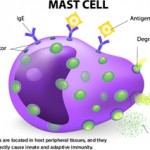Various T cell and B cell targets could provide potential therapies, including interleukins 12 and 23 and CD19 and CD20, among others.
Innate immune system activation with type 1 interferon as a key mediator and the adaptive immune system that results in autoantibody production both suggest potential therapeutic targets.
Ultimately, Dr. Crow believes combination therapies hold the key to effective lupus treatments in the future. Combination therapies that target the interferon pathway, autoantibody production and effector macrophages may provide better treatment options. Dr. Crow advised rheumatologists not to get too discouraged if one potential SLE treatment does not appear to work, because combination therapy likely will be the more effective route.
Vanessa Caceres is a medical writer in Bradenton, Fla.
References
- Catalina MD, Bachali P, Yeo AE, et al. Patient ancestry significantly contributes to molecular heterogeneity of systemic lupus erythematosus. JCI Insight. 2020 Aug 6;5(15):e140380.
- Owen KA, Price A, Ainsworth H, et al. Analysis of trans-ancestral SLE risk loci identifies unique biologic networks and drug targets in African and European ancestries. Am J Hum Genet. 2020 Nov 5;107(5):864–881.
- Cui J, Raychaudhuri S, Karlson EW, et al. Interactions between genome-wide genetic factors and smoking influencing risk of systemic lupus erythematosus. Arthritis Rheum. 2020 Sep 23;72:1863–1871.
- Crow MK, Olferiev M, Kirou KA. Type I interferons in autoimmune disease. Annu Rev Pathol. 2019 Jan 24;14:369–393.
*Speaker Disclosures
Dr. Crow has received consulting fees from AstraZeneca, BMS, Gilead, Lilly, Ventus and Viela. She has received grant money from Gilead. Dr. Crow is a shareholder in Amgen, Johnson & Johnson, Karyopharm Therapeutics, Merck, Pfizer, Praxis Precision Medicines and Regeneron.


